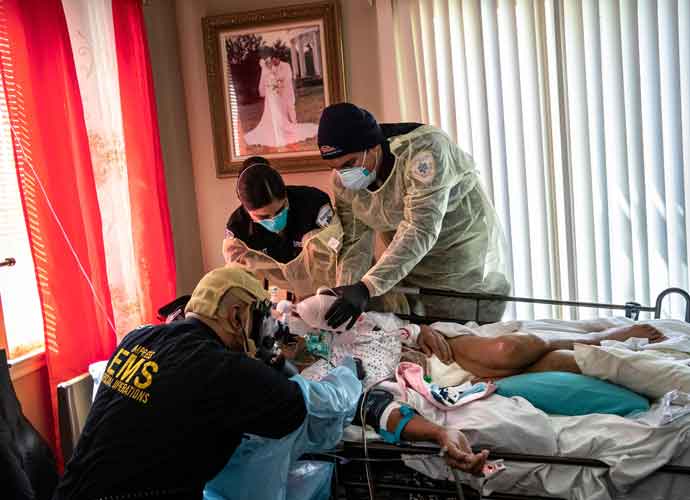New Pfizer Study Shows 3rd Booster Shot Can ‘Strongly’ Protect Against Delta Variant
According to Pfizer/BioNTech’s new data released on Wednesday, its Covid-19 vaccine can “strongly” increase protection against the delta variant of the coronavirus compared to its standard two-shot regime.
The data suggest that the antibodies that specifically attack the delta variant increased fivefold in those between 18 to 55 who got a third shot of the Pfizer vaccine versus those who only got two shots.
And for people 65 to 85, the antibody levels grew eleven-fold more in their third shot.
During a Wednesday briefing, Dr. Mikael Dolsten of Pfizer said that the new results on the third shot of vaccine were “encouraging.”
Subscribe to our free weekly newsletter!
A week of political news in your in-box.
We find the news you need to know, so you don't have to.
“Receiving a third dose more than six months after vaccination, when protection may be beginning to wane, was estimated to potentially boost the neutralizing antibody titers in participants in this study to up to 100 times higher post-dose three compared to pre-dose three,” Dolsten said during his remarks. “These preliminary data are very encouraging as delta continues to spread.”
Pfizer has also noted that it will submit data on a third dose to the FDA sometime during next month.
“We continue to believe it is likely that a third-dose booster may be needed within six to 12 months after full vaccination to maintain the highest level of protection, and studies are underway to evaluate the safety and immunogenicity of a third dose,” Dolsten said. “Pending regulatory approval, we also plan to start an immunogenicity and safety study in August to evaluate an updated version of our vaccine specifically designed to target the delta variant.”
According to recent reports, the delta variant has become more contagious than health experts had previously believed. CDC data suggest that this new strain was responsible for more than 51 percent of new Covid-19 cases from June 20 to July 3.
Experts are also predicting that new variants will continue evolving, causing the disease to circulate for at least the next two or three years.
Get the most-revealing celebrity conversations with the uInterview podcast!






Leave a comment